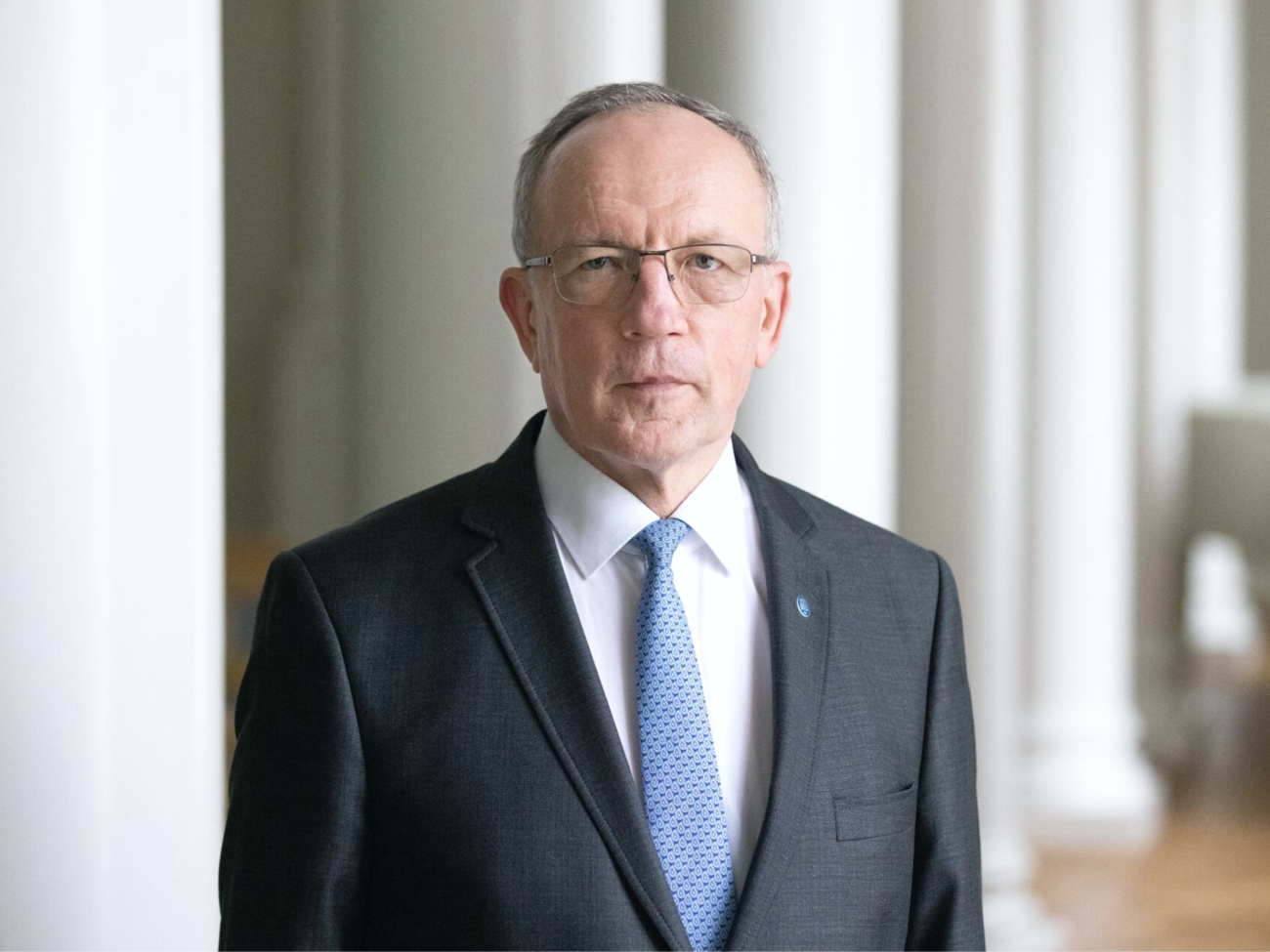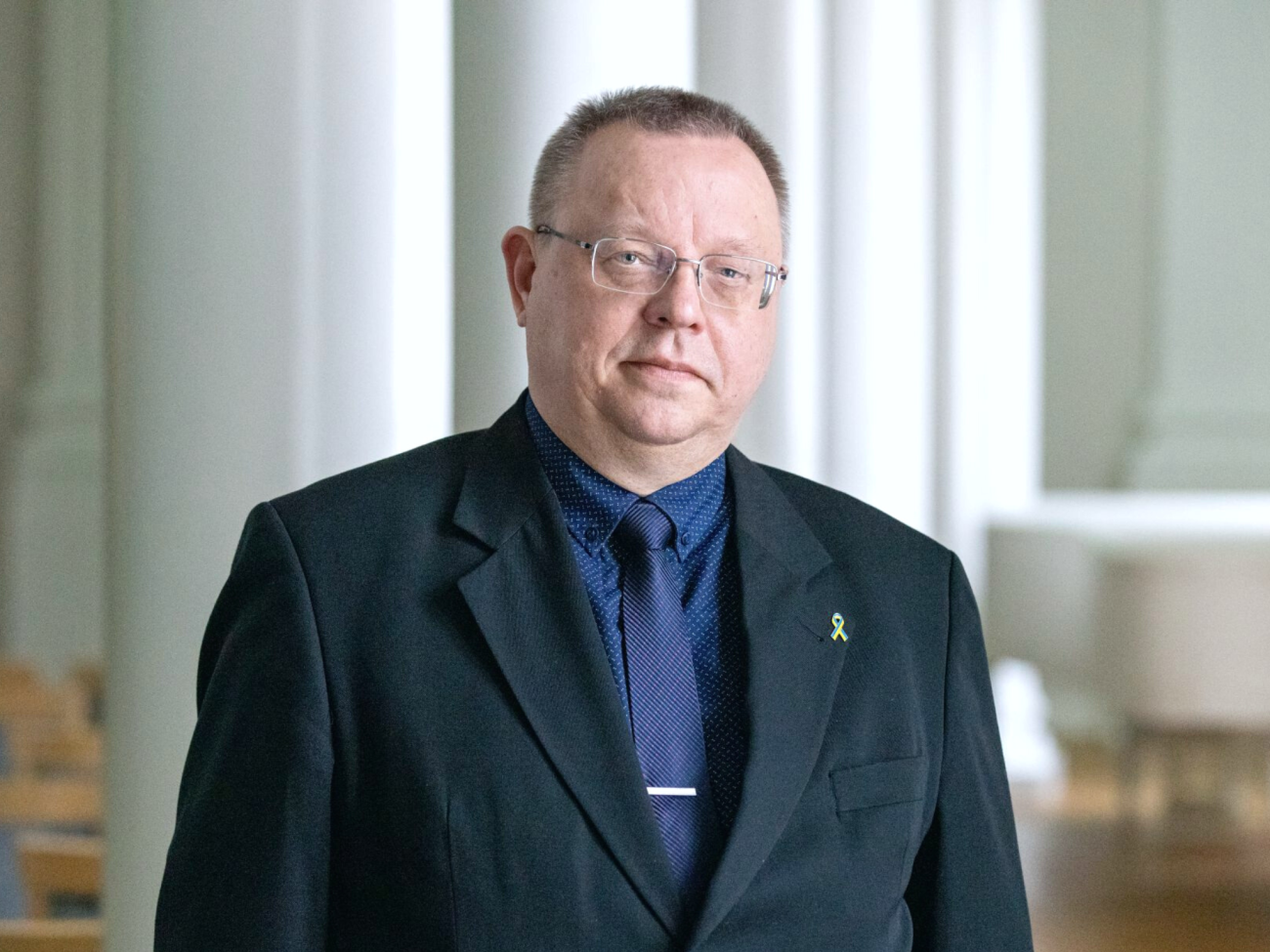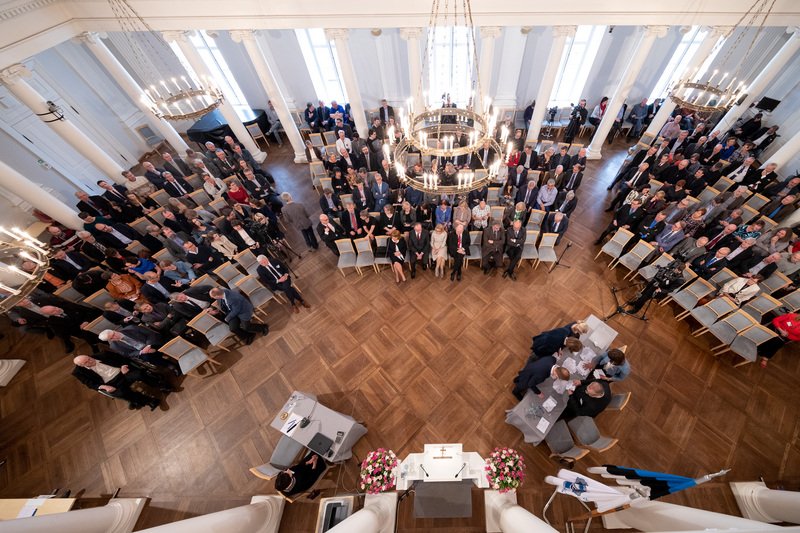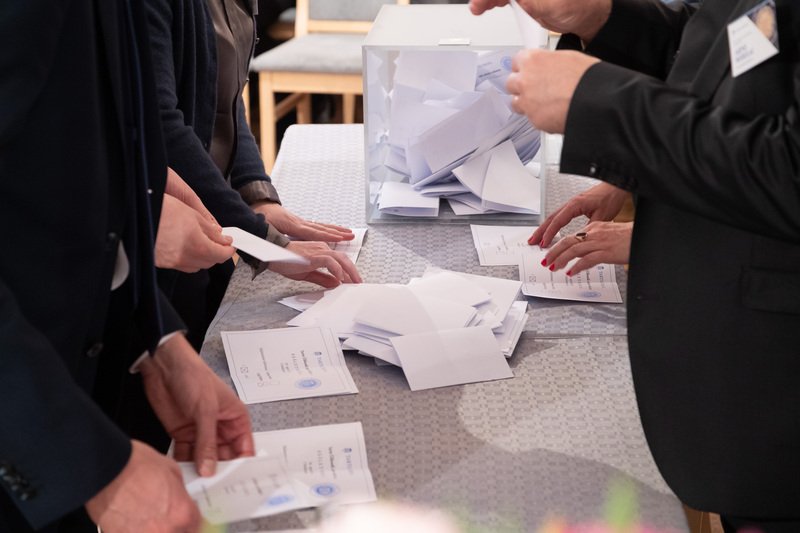Rector elections
The election of the University of Tartu rector took place on 20 April at 12:00 in the university assembly hall. The 292-member electoral council elected Professor of Neurosurgery Toomas Asser as rector of the University of Tartu with 168 votes. The elected rector assumes office on 1 August.
Rector elections are governed by the rector election rules.
The rector is the head of the university, responsible for the lawful and expedient use of the university’s assets and implements the highest administrative and disciplinary authority in the university within the rector’s competence and based on the decisions of the council and the senate. Also, the rector represents the university and makes transactions in the university’s name within limits provided by law and the university’s statutes. The rector has a single right to veto a senate regulation or resolution.
On 31 October 2022, the University of Tartu council approved the rector election rules and formed the five-member election commission.
The election commission chair Raili Marling announces the election in at least two major Estonian daily newspapers on 11 January. Eligible candidates are persons who are or have earlier been elected as professors. Candidates can be submitted by faculty councils, councils of other Estonian universities, the board of the Estonian Academy of Sciences, 15 ordinary professors of the University of Tartu jointly, and the student union. To set up a candidate, a written proposal with the introduction of the candidate and the candidate’s written consent must be presented to the election commission.
The submission of candidates ended on 13 March at 16:00.
On 27 March at 18:30, the rector candidates met with student representatives and students (Tartu University Library Conference Center, W. Struve 1).
The rector candidates’ public debate was held in the university assembly hall on 4 April at 15:00. All interested were welcome.
The council and the senate assumed a position regarding the candidates. The election commission informed the electoral council of the position of the council and the senate.
Meetings with rector candidates in faculties:
-
5 April at 16:00 in the Faculty of Science and Technology (Omicum, Riia 23b–105)
-
10 April at 16:00 in the Faculty of Medicine (L. Puusepa 8, A. Linkberg lecture hall)
-
12 April at 13:00 in the Faculty of Arts and Humanities (Pärimusmuusika Ait, Viljandi)
-
13 April at 13:00 in the Faculty of Social Sciences (Jakobi 2, lecture hall 226)
Meetings with rector candidates in faculties were open to all employees and students of the faculty.
On 13 April, the election commission confirmed the 292-member electoral council of the University of Tartu rector elections.
The election meeting, chaired by the election commission chair, took place in the university assembly hall on 20 April at 12:00. The election meeting was for members of the electoral council only. Toomas Asser was elected the rector of the University of Tartu
The rector takes office on 1 August.
The date of the inaugural ceremony of the rector and of giving the oath of office will be announced later.
When approving the Rector election rules, the council emphasised that the university needs a leader who is able to and wants to contribute not only to leading Estonia’s national university but also to the development of Estonian society as well as higher education, research and development in Estonia and Europe. A candidate for the position of the rector of the University of Tartu is expected to have a record of excellence in teaching, research and development, and academic leadership. A suitable candidate has proved him- or herself to be an experienced and inspiring leader, a spokesperson and a groundbreaker, the one who sets the university’s future vision and strategic directions.
The council expects the candidate to have competence in strategic management, negotiation skills and the ability to make and implement decisions. As a recognised opinion leader, the candidate should be visible in the public arena and ready to take responsibility for representing the university in relations with society, government authorities, and the international community to maintain the university’s position as the best in Estonia and one of the best universities in Northern Europe.
1. The rector treats students as colleagues. The rector:
- supports the mission stated in the UTSU development plan;
- emphasises the need for better inclusion of students within the university (including international students and students with special needs);
- is open to new projects in collaboration with UTSU;
- supports humane communication and understanding between teaching staff and students.
2. The rector supports the University of Tartu Student Union's positions regarding the financing of higher education. The rector:
- publicly supports our positions and works towards having them adopted on the national level;
- supports the opportunity to acquire higher education for free and on the same basis;
- supports increasing the size of the needs-based study allowance and the state-allocated achievement stipend funds;
- stands in the University of Tartu council for investment decisions aiming to improve the living conditions in dormitories and the study environment in study buildings.
3. The rector works to improve the quality of the existing curricula. The rector:
- guarantees that curricula are developed in a consistent and well-thought-through process which considers the students' feedback;
- emphasises to the teaching staff that their substantive feedback is necessary for the improved development of students;
- supports improving teaching methods and implementing modern methods at the University of Tartu.
4. The rector helps integrate the university-wide idea of a sustainable society into daily teaching activities and research. The rector:
- stands for having the university train sustainable development experts in different fields;
- is a role model and a leader in implementing the University of Tartu guidelines for equal treatment.
5. The rector stands for the well-being of the university’s greatest asset – its people. The rector:
- ensures that the university staff has all the necessary resources and support to carry out the best teaching and research.
20.04.2023 Toomas Asser was elected the rector of the University of Tartu
17.04.2023 Electoral council elects the rector of the University of Tartu
14.04.2023 Short videos presenting rector candidates’ key objectives
29.03.2023 University of Tartu rector candidates’ debate on 4 April in university assembly hall
27.03.2023 Rector candidates’ election platforms have been published
27.03.2023 Today, rector candidates meet with students and student representatives
13.02.2023 University of Tartu rector candidates are Toomas Asser, Raul Eamets and Jaak Vilo
15.02.2023 Faculty of Medicine nominated Professor Toomas Asser as rector candidate
09.02.2023 Faculty of Science and Technology nominated Professor Jaak Vilo as rector candidate
09.02.2023 Faculty of Social Sciences nominated Professor Raul Eamets as rector candidate








